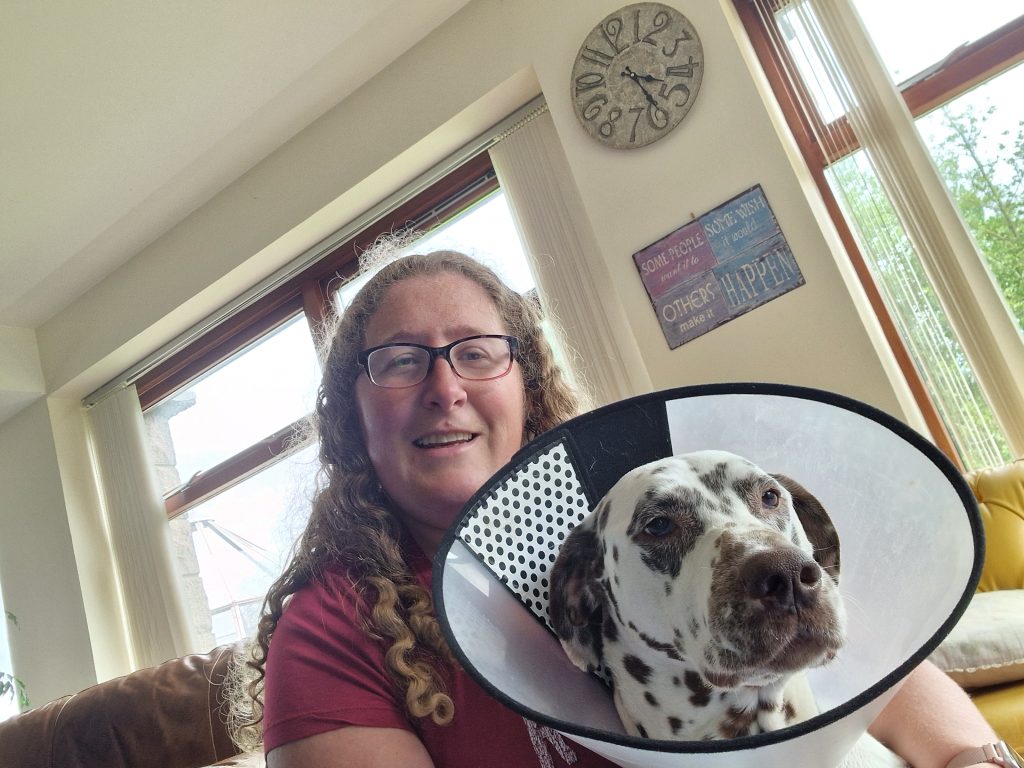Let’s face it, we all love a bit of routine—whether it’s your morning coffee or your dog’s walk at exactly 7:30 am every day. Dogs thrive on predictability too. It brings them comfort, helps them feel secure, and reduces anxiety. But what happens when life throws us off track and routines go out the window?
The Comfort of Routine for Dogs
Dogs are creatures of habit, and routines help them feel safe by letting them anticipate what’s coming next. They know when to expect their meals, playtime, and—most importantly—their walks. This predictability can be a tremendous comfort to them, helping to reduce anxiety and fostering a sense of security. However, when routines are disrupted, our dogs may feel confused or distressed.
The Impact of Disrupted Routines
I once worked with a client who walked her dog at 8 am every single day without fail. When she contracted COVID-19 and couldn’t leave the house, her dog became visibly distressed, pacing by the door and whining. The sudden change left him completely bewildered.
Another client’s dog, recovering from surgery, attempted to wobble to the door just hours after the procedure, expecting his usual outing. These moments illustrate just how deeply routines are ingrained in our dogs’ minds and how significant disruptions can impact them.
Why Dogs Struggle with Change
Dogs are incredibly perceptive and pick up on cues—like when you reach for your keys or put on a particular coat—that signal it’s time for a walk. These triggers build anticipation, and when the expected activity doesn’t happen, it can lead to confusion and stress.
Summer holidays or extreme weather can also disrupt routines. Dogs can sense when their usual structure is off, and being looked after by someone else while you’re away can make them feel even more uncertain.
Helping Your Dog Cope with Routine Changes
To help your dog become more adaptable, try varying their routine slightly from time to time, even when things are running smoothly. For example, occasionally take your dog for a walk at a different time or skip the walk in favour of indoor games or training. By introducing small changes, you can help your dog build resilience and cope better when unexpected disruptions arise, such as illness, extreme weather, or holiday plans.
When temperatures rise in summer, for instance, walking your dog during the cooler parts of the day—early morning or late evening—is essential. If it’s too hot to walk at all, plenty of indoor activities can keep your dog mentally and physically stimulated.
Activity of the Week: Teaching Your Dog to Spin or Twist
One way to mix up your dog’s routine and keep them engaged indoors is by teaching a new trick! This week, try teaching your dog to spin (clockwise) or twist (counterclockwise).
How to Teach Spin or Twist:
- Grab a Treat: Take a treat and hold it close to your dog’s nose.
- Guide in a Circle: Slowly move the treat in a small circle around their head, encouraging them to follow it with their nose.
- Add the Cue: As they turn in a full circle, say “spin” or “twist” (depending on the direction) and reward with the treat.
- Repeat: Practice a few times, and soon your dog will be spinning and twisting on command!
Teaching tricks like this provides both mental and physical stimulation, especially useful when walks aren’t possible.
Looking for More Ideas?
If you’re seeking new ways to keep your dog entertained when routines change, check out my Freebies Page! It’s packed with resources to help you train, entertain, and care for your dog in all situations, whether you’re looking for fresh ideas or just want to see what’s available.
Until next time, keep those tails wagging!
Laura Carter IMDT

With over 15 years of experience in dog training, Laura Carter has dedicated her career to enhancing the bond between humans and their canine companions.
Based in Scotland, Laura lives with her twin daughters, four dogs, and a variety of other animals.
A member of the Institute of Modern Dog Trainers (IMDT) and a certified Scentwork UK instructor, Laura brings a wealth of knowledge and expertise to her work.
Her expertise in dog care and rehabilitation is showcased in the book The Vet Says Rest, a valuable resource for pet owners navigating their dogs’ recovery.
Laura also brought her passion for dogs to a wider audience as a trainer on Channel 4’s Superstar Dogs alongside John Barrowman.
Her work continues to inspire and support dog owners everywhere, helping them build happier, healthier relationships with their pets.